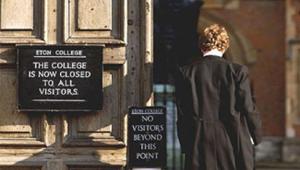The government has been ‘inundated’ with more than 2,000 applications from schools to run summer schools funded by £50m of the pupil premium programme, according to Deputy Prime Minister Nick Clegg.
These will start this year and help disadvantaged children make the transition from primary to secondary school.
‘As many as 70,000 11-year-olds could attend – seven out of every eligible ten,’ Clegg said.
The figures were included in a speech Clegg made, focusing on the impact of the pupil premium. This provides schools with top-up funding to help disadvantaged children, based on the number of children receiving free school meals.
Clegg said schools were using pupil premium funds for homework clubs, counselling services and educational visits to, for example, museums. The government-backed Education Endowment Foundation charity will evaluate the differing approaches.
In the speech, the deputy prime minster also announced that the EEF would shortly embark on a fresh round of funding, providing targeted support for Year 7 pupils whose literacy skills have fallen below expected levels. Groups of schools are being invited to bid for ‘catch-up cash’ and successful schools can spend this on one-to-one tuition, small catch-up classes or tuition vouchers, which parents can spend, Clegg said.
Clegg also announced that the government had teamed up with the Times Educational Supplement to launch awards for the schools that had done the most to boost the performance of their poorest pupils. Cash prizes of £10,000 would be given to ‘the best of the best’.
‘This isn’t just about glitz and glamour,’ the deputy prime minister said.
‘We want every aspiring new teacher to see working with disadvantaged children as a crucial step to the top. An essential part of a successful and fulfilling career.’
But the National Union of Teachers said introducing competition for funding between schools was ‘unacceptable’.
General secretary Christine Blower said: ‘State funded education must not become a lottery. If there is additional money then that should be used where it is most needed, on the basis of proper analysis of schools’ funding requirements.’
She added that the pupil premium was being used to plug funding gaps created by government cuts and not in the ways Clegg outlined.
The Association of School and College Leaders was, however, more encouraging in its response. General secretary Brian Lightman welcomed the popularity of the summer school scheme and the commitment to fund research to establish which approaches work best. He also said the pupil premium awards were ‘a positive move even if they won’t make a huge difference to what schools are already doing’.
The EEF is a grant-making charity established by the Sutton Trust. In February, it awarded £3.2m to six school projects focusing on raising the attainment of poor pupils.





















